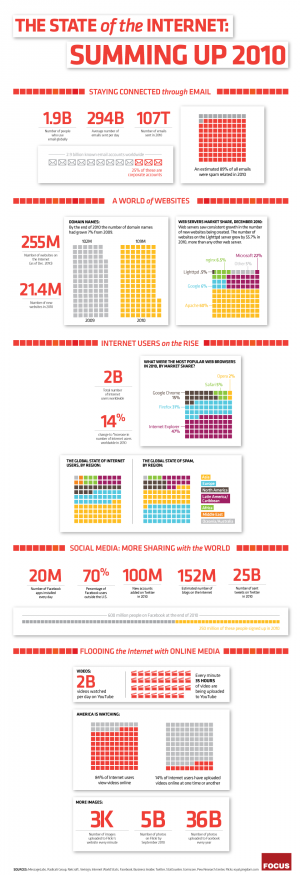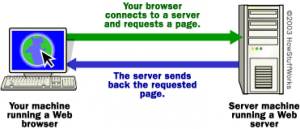Internet Control

Internet Control
Internet Control refers to third-party attempts and abilities to control the flow of information on the Internet. Third-parties include any party that has the ability to control or block certain information on the Internet. This can include state and federal governments, but it can also include other non-governmental parties such as corporations like Internet service providers (ISPs). The topic of Internet control is controversial because it is mostly community driven, and it exists all over the world. It does not exist under the authority of one particular government, but it can be accessed from virtually any country in the world.
At the highest level, the Internet is a collection of computers that have been setup to allow network connections via an agreed upon protocol, which is called the Internet Protocol (IP). Modern web browsers use the Hypertext Transfer Protocol (HTTP) or the secure version, HTTP Secure (HTTPS). These protocols use IP for the transfer of web pages. Web browsers know how to use this protocol, and users can therefore use a web browser to connect to various websites, which represent those computers that have been setup to receive these kinds of HTTP and HTTPS connections. Because of the virtual nature of Internet browsing, it is difficult for any governing body to control what can and cannot be accessed or displayed on the Internet.
Contents
Background

The Internet is comprised of independently-operated computers, known as servers (because they serve information), which are inter-connected on a global scale. This is why the Internet is also know as the World Wide Web. Many of these servers serve websites, which are viewable from a web browser on a user's computer. Websites can be owned and/or operated by anyone including a single person, large groups, businesses and corporations, as well as entire governments.
It is cheap to create a website, since it is possible for anyone with Internet access to create a basic website for free. Once a user creates a website, then it can usually be accessed from anywhere in the world. It is this ease and flexibility that has allowed the Internet to grow so quickly. This growth has lead to a wealth of information being publicly accessible on the Internet. This wealth of information has made the Internet popular. However, there is no global Internet filter. Website operators can generally post whatever they want on the Internet, and this is what has made the Internet a somewhat controversial medium.
Governing bodies have always made special efforts to control the flow of information. For example, the United States (US) government keeps classified documents, which the US might not make public until a specified time period has passed from the time that the document was filed. In some countries, the government has complete control over what information is released via all public media outlets. But, the Internet represents a new, difficult to control digital medium, simply because of its shear size and span.
Because the Internet is a distributed network of computers, it is difficult for any governing body to say what can and cannot be accessed or displayed on the Internet. Even if a government manages to control one outlet of information flow on the Internet, there are still many other ways that a user can get to the same information. In general, most other media outlets can be censored or controlled in some way by a local government. At the present time, the ethical use of the Internet is up to the user base. Because of this, the Internet is the source of much social controversy in the information age.
Reasons for Internet Control
Because there is no filter to prevent users from posting any kind of material on the Internet, the Internet has been the source of much controversy. There are two main kinds of information, of which third-parties generally seek to control the flow: sensitive material and intellectual property. Sensitive material is usually only intended for a small subset of people, and therefore, it requires that the information seeker verify his or her identity. On the Internet, it is easy to masquerade as someone else. [3] This makes it difficult for website operators to verify the important information required to view certain material such as a person's name or age. It is also well known that once information makes it to the Internet, it may be there forever. There is even a website dedicated to crawling the web and archiving websites on the Internet. [4] This makes it difficult to control intellectual property on the Internet such as music, movies, and books. Once the material has been leaked to the Internet, then there will almost always be a way to retrieve it without going through the process of identification or payment for the information.
Concerns for Internet Control
Examples
China

The government of the People's Republic of China is has participated in some aggressive attempts at Internet censorship. The People's Republic of China regularly censors information regarding certain political events. Most notably, they have censored information regarding certain political demonstrations have been held at Tiananmen Square.
This type of censorship is generally made possible via aggressive filtering at government-owned ISPs. Furthermore, the Chinese government has even reached out to popular Internet search companies such as Google to make searches in China's locale censored for Chinese users.
United States
The most significant attempt at Internet traffic control in the United States was the Stop Online Piracy Act (SOPA). This bill was introduced in October of 2011, and it would allow the United States Department of Justice and copyright holders to attempt to acquire court orders to prevent websites from enabling copyright infringement. Under this bill, the accusing parties could get court orders to force internet service providers (ISP) to block access to infringing websites at the Domain Name System (DNS) level.
Corporate
In 2008 it emerged that Comcast, one of the nation's largest media companies, threatened to throttle (slow) the internet speeds of its customers that use the most bandwidth. A spokesperson for the company expressed that this move was for the "...overall good of our customers." Additionally, in August of 2008, the Federal Communications Commission ruled that the throttling on internet speeds for peer-to-peer sharing was illegal.
In February 2010, it was found that the ISP Verizon blocked access to some sites associated with 4chan. According to Verizon, this was done to ensure "no current risk of harm." Access to the site was restored to Verizon's customers within a few days.
Ethical Implications
Control over the internet has direct implications on the freedom of speech. While people do connect to the internet through Internet Service Providers, no one actually owns the internet. Restrictions on internet access also restrict free speech, which we are ethically obligated to promote. One ethical consideration is whether or not anyone should restrict what can and cannot be accessed through the internet, and who can and cannot access such content.
See Also
- Censorship
- Information Transparency
- Internet Archive
- Internet Censorship in Hong Kong
- The Open Internet